车间故事
如何用 8 个步骤制作一枚戒指。
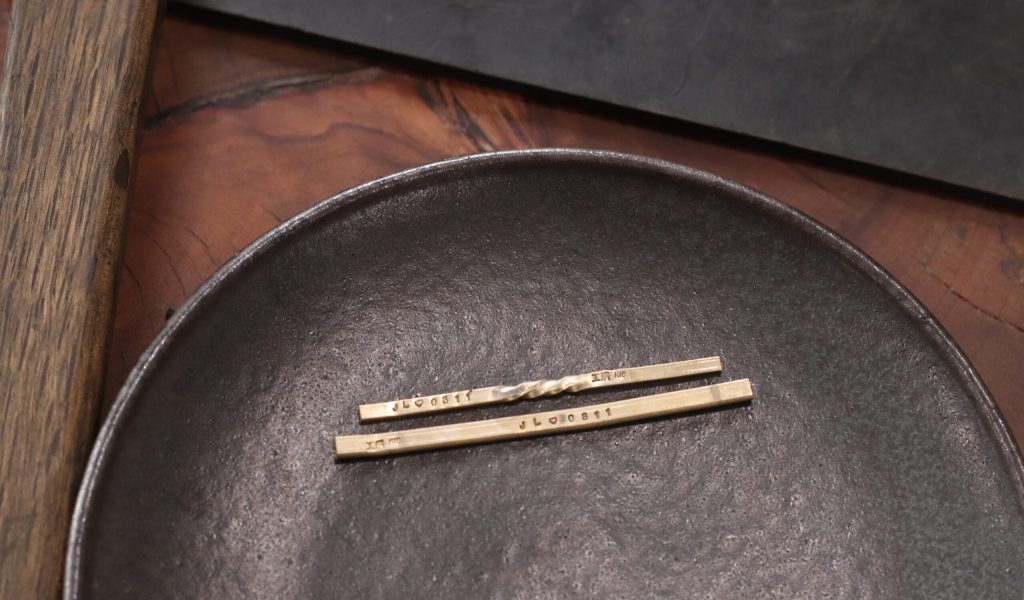
2025 – 01 – 02
有没有想过,一块简单的 18K 金、铂金或纯银条(S925)是如何变成一枚令人惊叹的戒指的?KOBO Jewellery 采用丹佐法(锻造)制作戒指,使其经久耐用。
在本文中,我们将带您了解制作戒指的八个基本步骤,并带您了解 KOBO 戒指制作工坊中等待您的精彩旅程!
自制戒指的步骤
- 设计选择/咨询
- 雕刻
- 退火
- 塑形
- 焊接
- 打磨
- 纹理
- 抛光
让我们开始戒指制作之旅吧
1.设计选择/咨询
在 KOBO,我们提供适合各种风格的多样化选择。无论您是被铂金的时尚优雅所吸引,还是被黄金的璀璨温暖所倾倒,我们都能为您提供各种宽度的选择、独特的设计和精美的款式。 纹理 确保您能找到符合自己审美的完美作品。
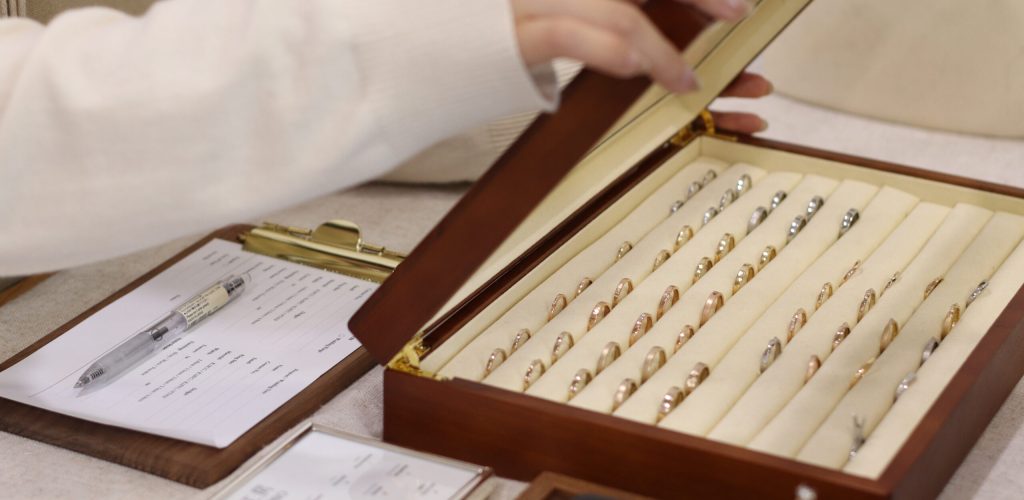
到达工作室后,首先要选择自己的设计。选定后,就可以系上围裙开始制作了!
2.雕刻
第一步--也可以说是最有趣的一步--是雕刻!在这一过程中,您将有机会使用 KOBO 提供的各种印章,在戒指内侧(或外侧)印上特别的信息,增添个人风格。
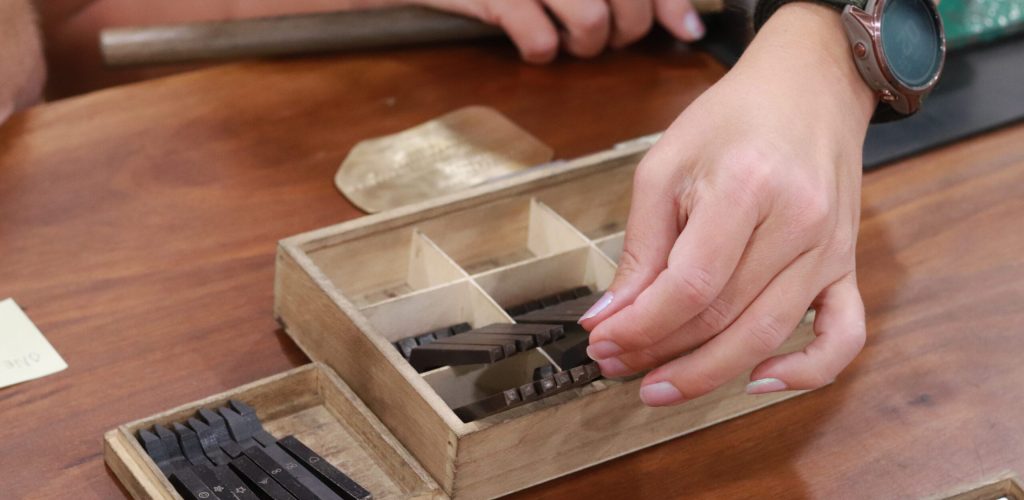
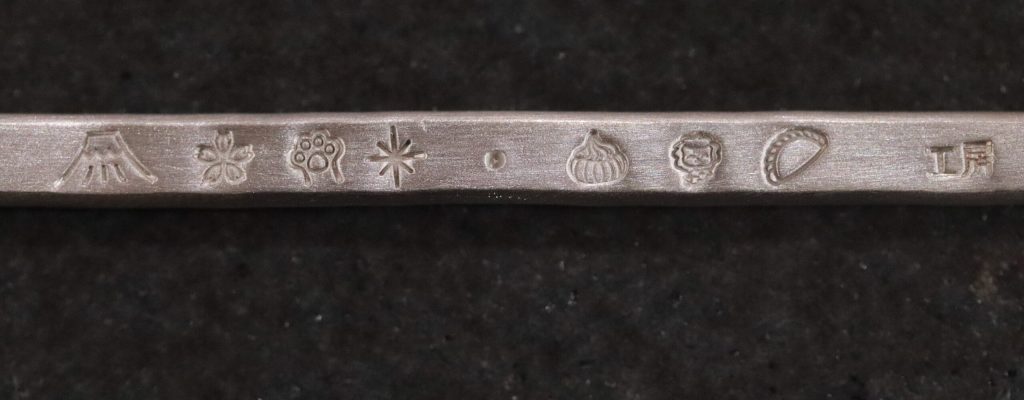
KOBO 的邮票系列包括富士山、樱花花瓣和闪烁的星星等特别设计,均由日本工匠新堂先生精心制作,为每枚邮票增添了传统工艺的韵味。
我们为游客提供以新加坡文化为灵感的独家邮票,如鱼尾狮、宝石饼干和咖喱泡芙,为游客带来难忘的纪念品,捕捉新加坡的精髓。
3.退火
金属的一个独特特性是能够通过雕刻或锤击等反复加工而硬化。为了在塑形前恢复延展性,金属棒会在一种名为退火的工艺中被轻轻加热至橘红色。
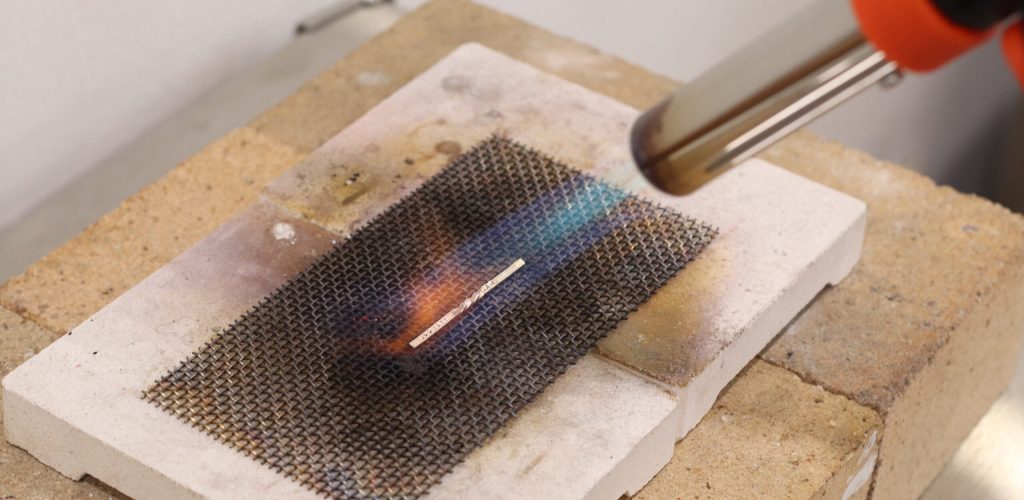
4.塑形
银条软化后,戒指将在不锈钢芯轴上成型,轻轻推动两端,形成水滴形。然后将两端敲打成圆形。
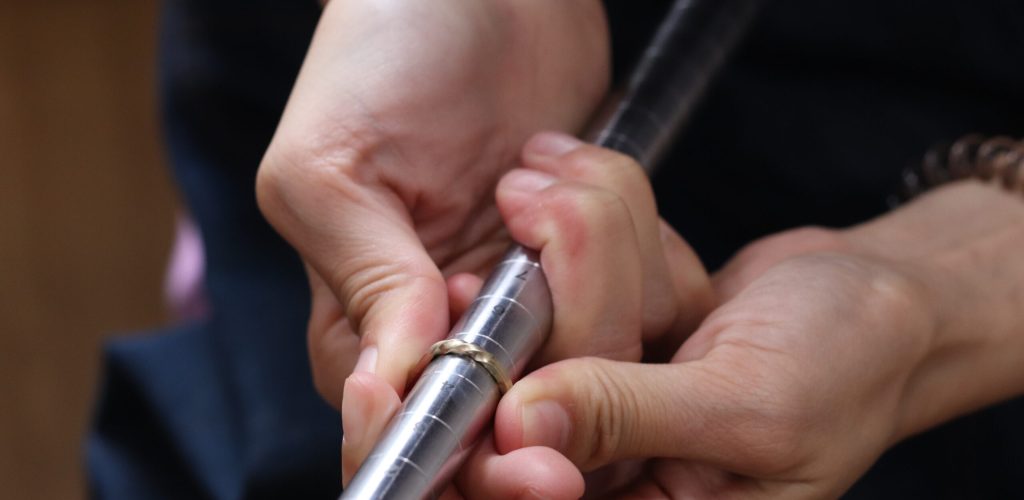
5.焊接
调整好戒指后,在接缝处放置一小块称为焊料的金/铂或银。然后将焊料加热,使两端融合在一起,在称为焊接的过程中完全闭合缝隙。
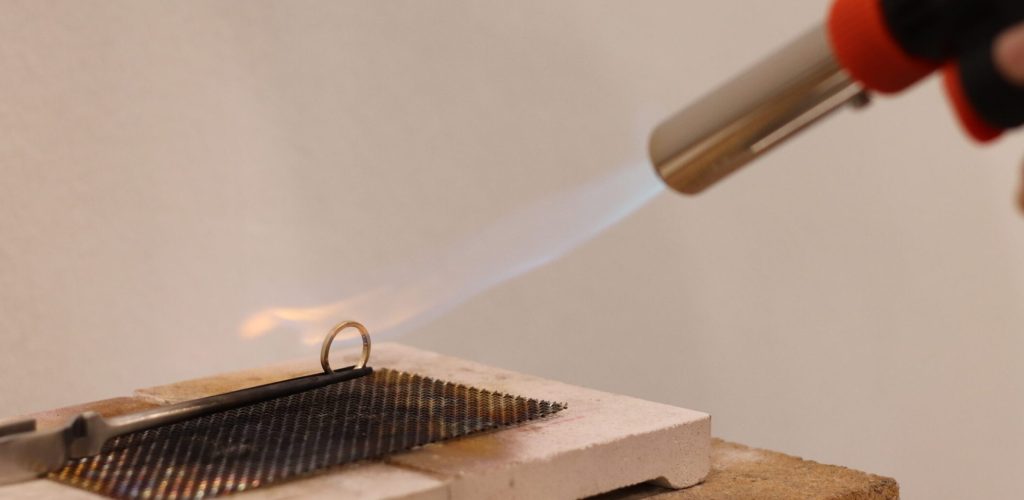
6.打磨
在焊接过程中,焊料会在表面留下多余的凸起。 打磨有助于去除这些多余的明显划痕,为下一步做好准备。
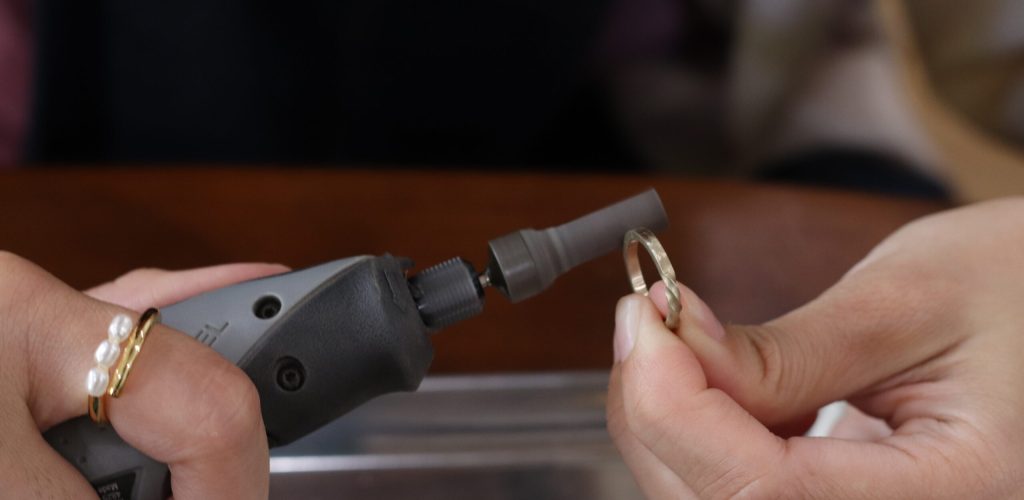
7.纹理
纹理加工是粉丝们最喜欢的步骤,通过使用不同类型的锤子敲打戒指表面,使其产生独特的纹理。
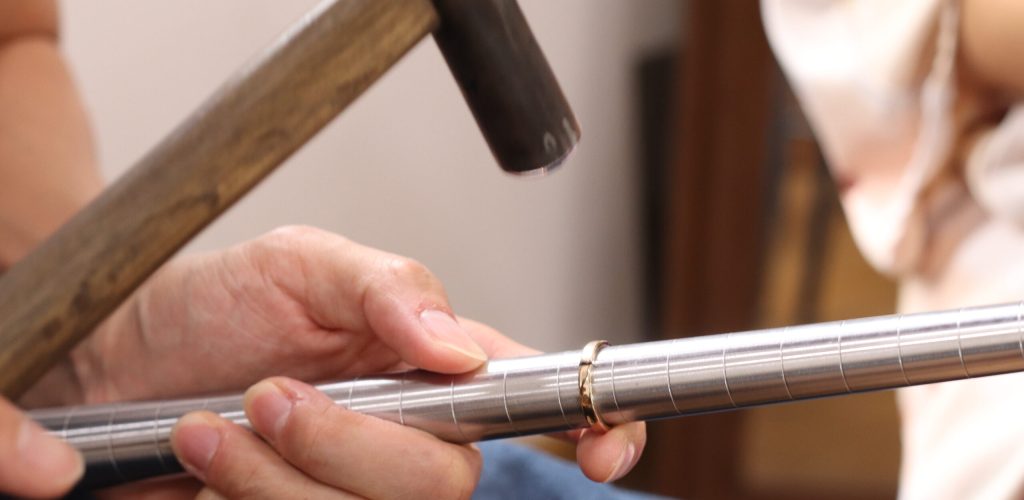
8.抛光/亚光
现在我们即将进入戒指制作过程的最后一步:抛光或哑光!这将根据您的喜好,为您的戒指赋予光泽或哑光效果。这两种表面处理都使用不同的附件,以创造完美的效果。
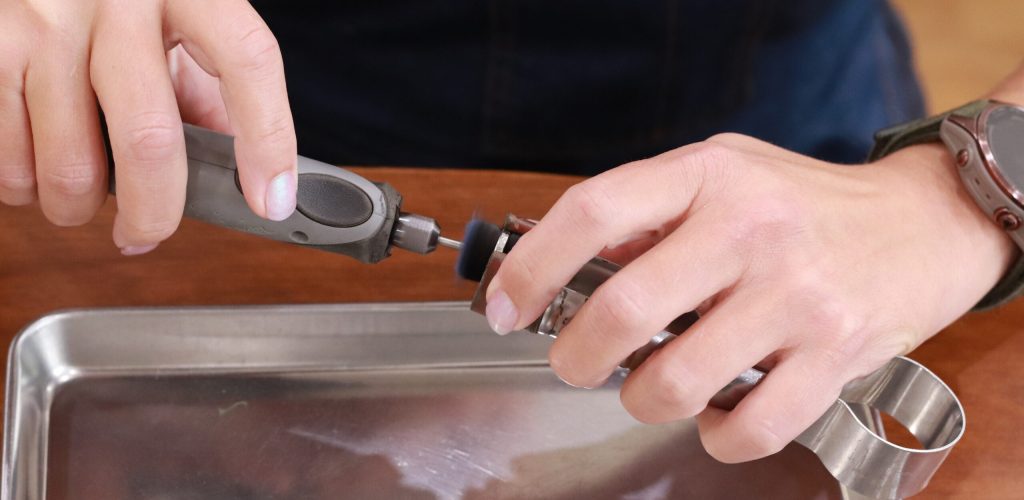
标题:如果您在两种纹理之间犹豫不决,您甚至可以选择对半设计!如果想要更精致的外观,您可以只在戒指两侧做纹理处理,这样既独特又低调。
-
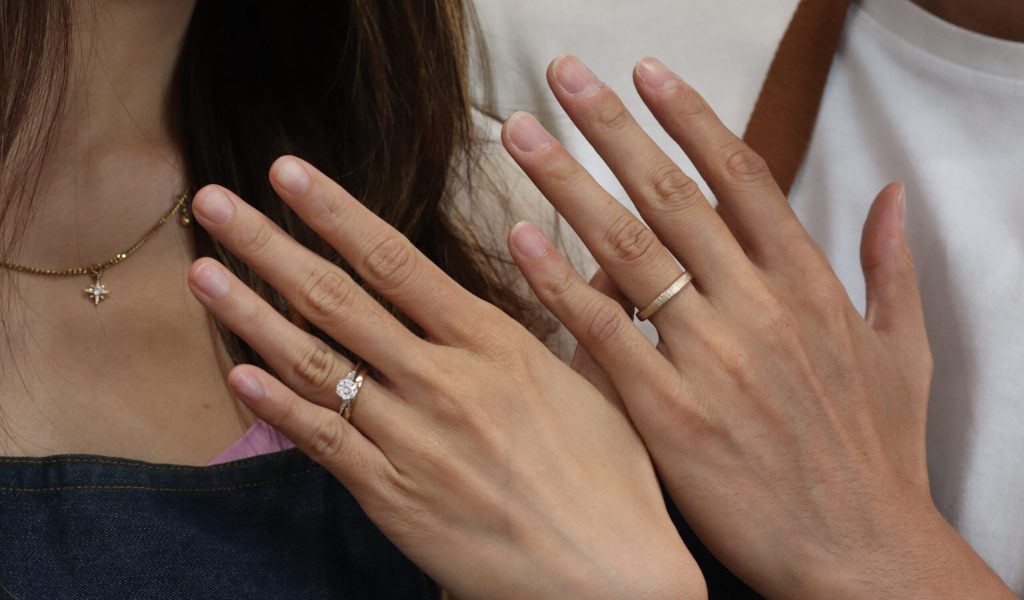
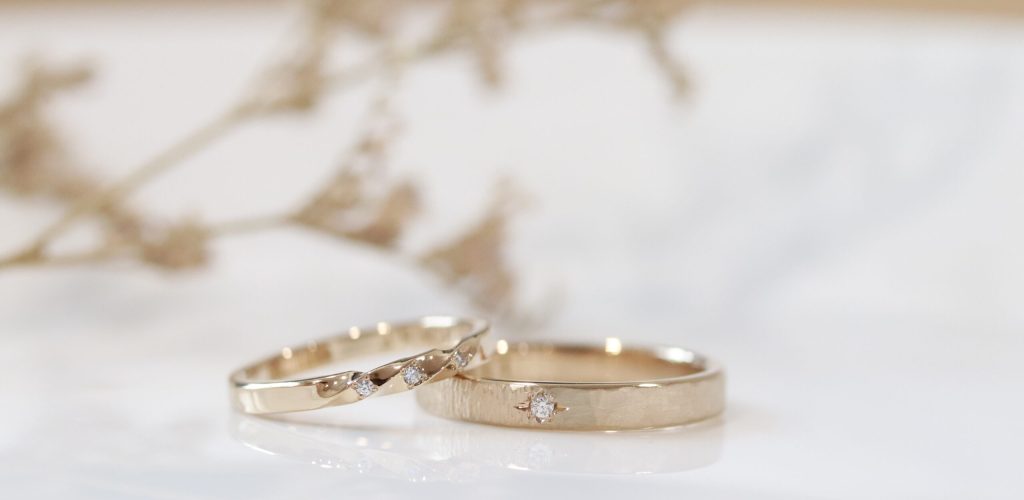
如果您有兴趣在戒指上镶嵌钻石或宝石,戒指将被送往我们在日本的工作室,由技艺精湛的工匠为您镶嵌所需的宝石。 请注意,这项服务需要 4 至 6 周的准备时间。
-
恭喜您您现在知道如何通过锻造法制作戒指了。准备好检验您的新技能,制作属于自己的独一无二的作品了吗?
今天就预订我们的工作坊,体验制作独一无二作品的乐趣。无论您是初学者还是经验丰富的制作者,我们都会指导您完成制作过程中的每一步。我们迫不及待地想看到你的创造力大放异彩!
